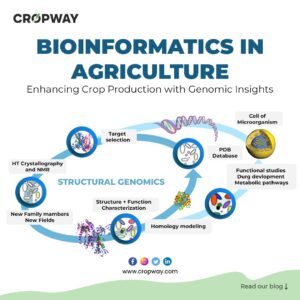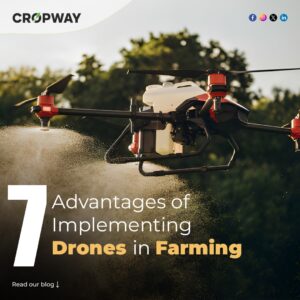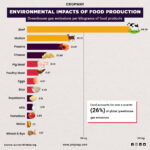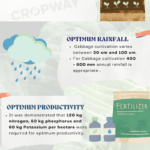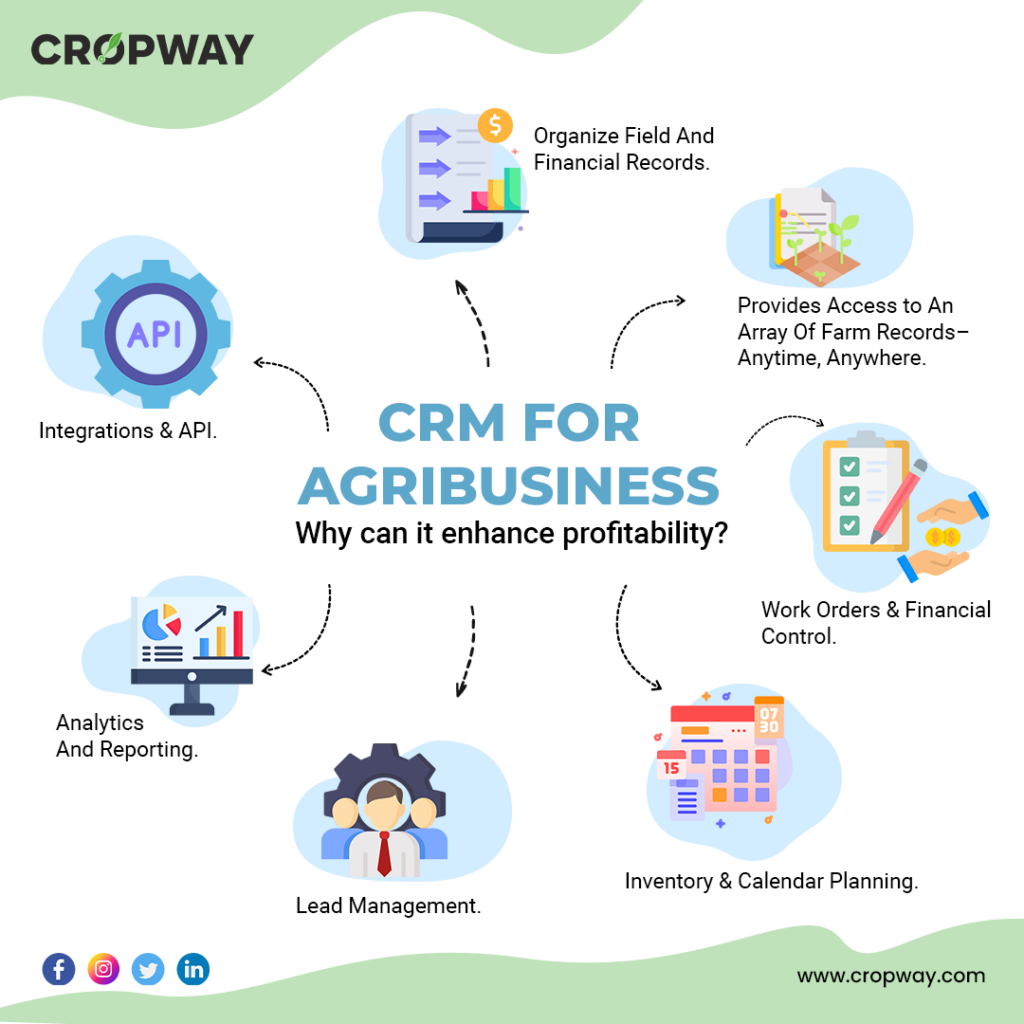
Introduction
Studies indicate that the key influencing factor for the success of any brand relies on the experience of their customers. More than ever stakeholders in the agriculture value chain and different businesses (or agribusiness) are looking for ways to enhance the customer journey to enhance profitability. Customer Relationship Management (CRM) emerges as a pivotal tool, revolutionizing the way businesses interact with their clientele. At its core, CRM software is a technology designed to oversee all the different customer interactions, facilitating the establishment of robust relationships and effective management of the client base, among various agricultural processes. This includes employing various tools, skill sets, and strategies to ensure effective customer retention.
When implemented strategically, CRM systems elevate service quality and allow businesses to focus on tailoring their offerings to meet client preferences. For instance, by analyzing customer orders—such as consistent purchases of specific fertilizers—CRM enables personalized recommendations for complementary additives. The true power of CRM lies in its ability to analyze data, creating a foundation for consistent and personalized customer experiences. This, in turn, fosters the trust necessary to drive sales. When deployed effectively, CRM systems offer a range of benefits:
Reasons why agricultural companies or agribusinesses need a CRM?
1) Improved Customer Service:
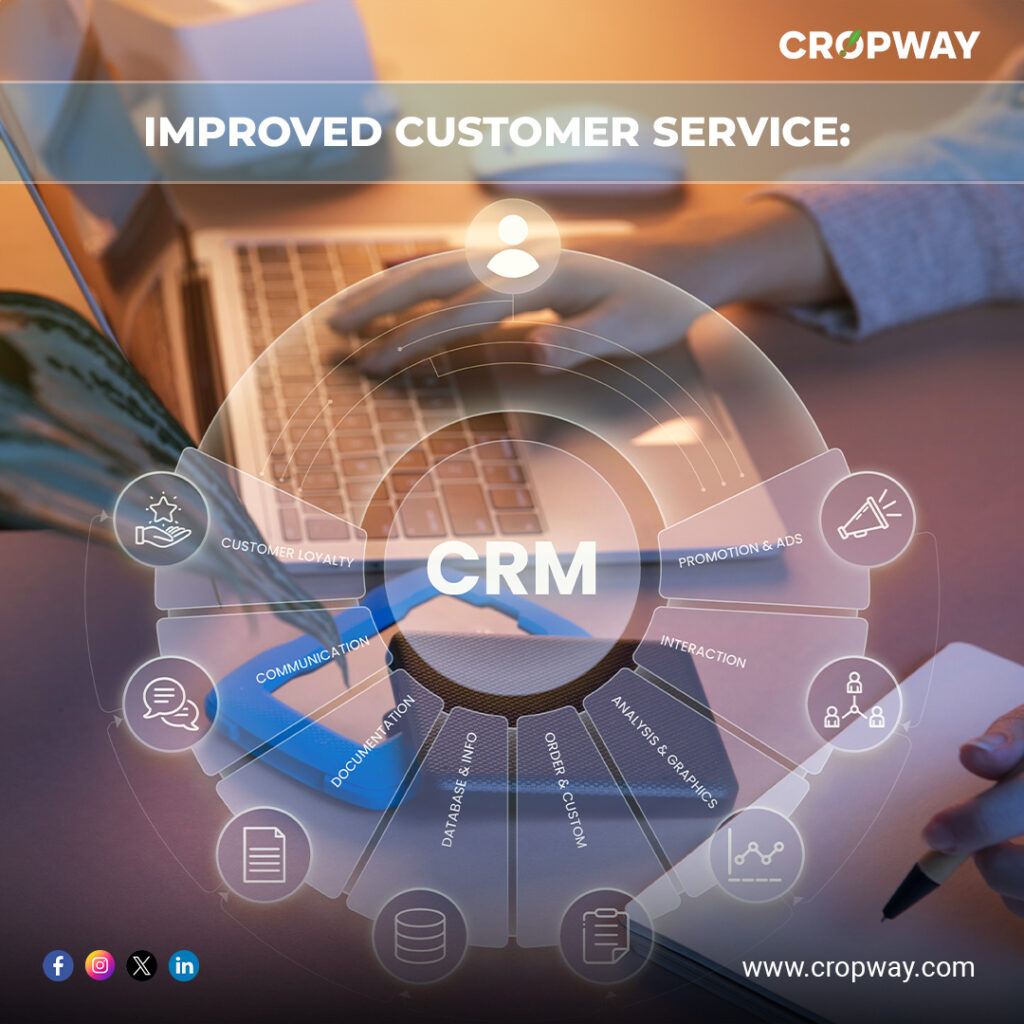
By centralizing customer data, CRM systems create accurate profiles that enhance response times and foster collaboration among sales, service, and marketing teams. This leads to increased customer satisfaction and a higher likelihood of converting first-time customers into loyal patrons.
2) Increased Productivity:
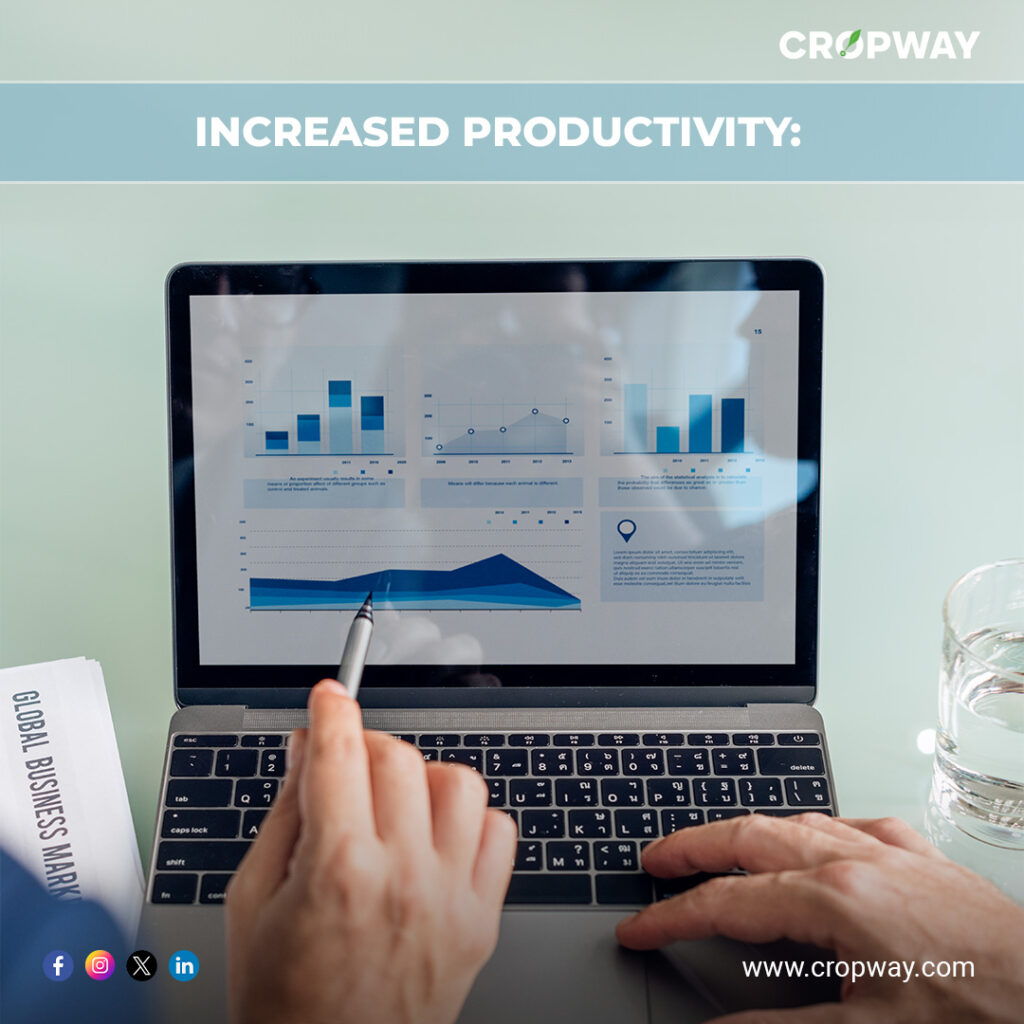
CRM tools streamline mundane tasks, such as data entry and customer information updates, leading to faster processes and reduced errors. Automation of customer interactions through digital channels like email, live chat, or social media further accelerates responses, enhancing productivity and customer engagement.
3) Lead Generation:

The ultimate aim of CRM in agriculture is twofold: to generate leads for the business and to maintain customer satisfaction through continuous engagement and service. Beyond sales, it encompasses answering queries, solving problems, and establishing a meaningful connection with customers. For organizations in agriculture, viewing CRM through the lens of customer engagement, marketing, and service is crucial for sustained success in today’s competitive landscape.
4) Analytics & Integrations:
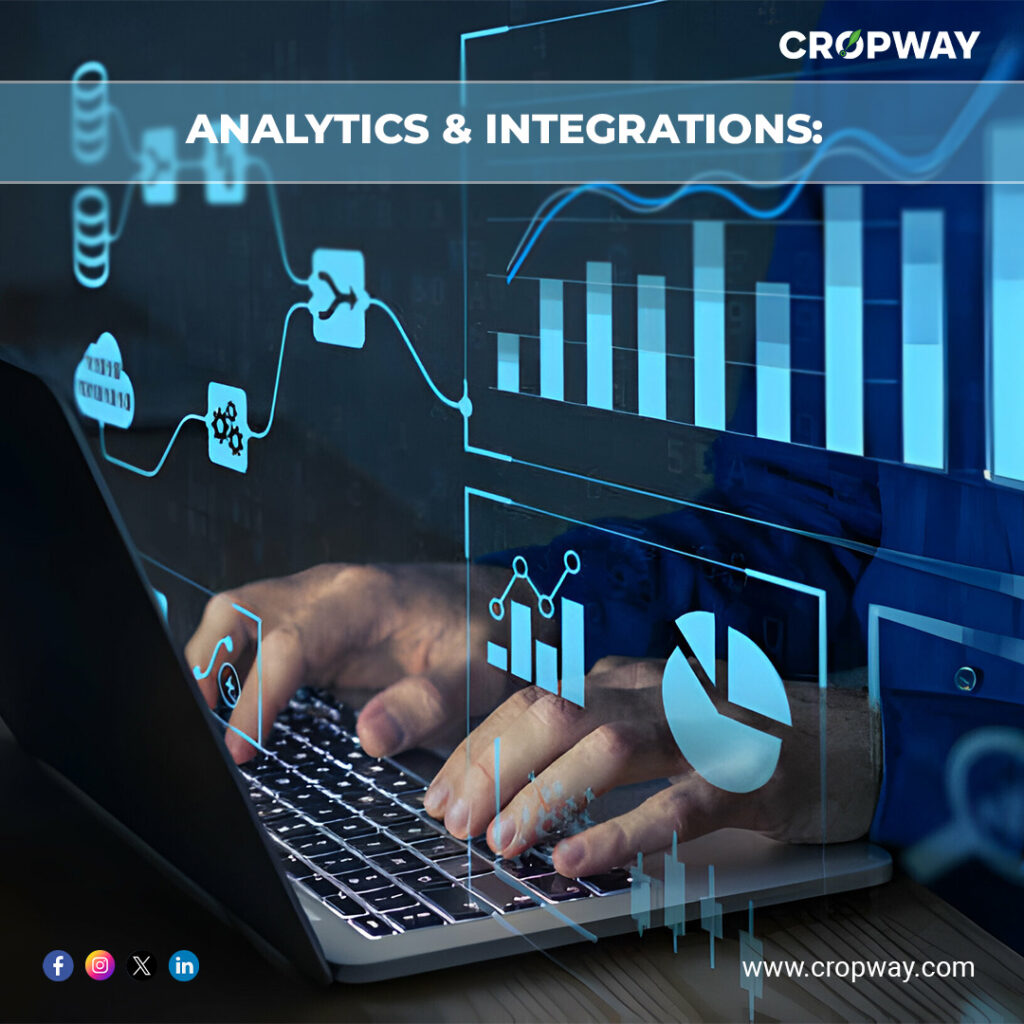
CRM also enables access farm records anytime, anywhere, using analytics and reporting integrated with inventory management on various devices such as laptops, tablets, mobile phones, etc. All records are securely stored on the cloud, ensuring top-notch SSL security.
What are the features of Cropway’s CRM Module?
Successful agribusiness operations demand meticulous planning and data management. With topography maps, soil testing, satellite images, and seed density to track, relying on Excel files is no longer sufficient for moderate to large operations. Enter Cropways Agriculture-specific CRM—an indispensable tool offering fully customizable options tailored to your specific needs in customer information or lead generation (capture agri data such as grain, seed, livestock, fertilizer, chemical, and retail equipment sales).
It helps maintain and manage stock inventory through the effective management of enterprise-class software with tailored advisory services. The CRM Module assists companies in monitoring on-field staff, farmer interactions, purchases, inventory, and the entire process from planning to post-production, transforming their activities into tangible, hands-on results. A few of the features that make it one of the best CRM solutions for agribusinesses are as follows:
1) Mobility with Customer Data
For those constantly on the move, CRM for agriculture ensures your data moves with you. It organizes key client information into detailed profiles, encompassing call logs, order histories, and relevant notes. With advanced online and offline capabilities, sales reps can access and modify customer records in the field or remotely. This guarantees that the entire team stays updated with consistent information, fostering stronger customer relationships through accurate support and personalized product recommendations.
2) Contact & pipeline management
Provides a centralised system for customer journey can be tracked, their servicing can be done timely until they are through conversion and repeat orders. With higher transparency, you have a better grip on monthly weekly targets such as how many orders are closed, pending etc.
3) Purchase history
Gain a complete view of your customer’s purchase history, including order details, product quantities, costs, and transaction timelines. By centralizing this information, the CRM enables sales reps and customer support teams to access real-time data on past transactions, current orders, and emerging trends. This proactive approach facilitates anticipating sales, optimizing inventory, and ensuring timely supplier communication. Ultimately, it leads to increased product turnover, enhanced revenue, and the cultivation of loyal, returning customers.
4) Integration with existing systems
Manual work, coupled with a large volume of data, resulted in significant human errors, delays, and monetary losses for the group. Cropway helps seamlessly integrate with users’ existing systems to migrate data and gain control over the business.
5) Built-in Predictive Analytics
Leveraging AI, modelling, and data mining, predictive analytics in Agribusiness CRM utilizes historical events and current trends to foresee future outcomes. By feeding collected data through predictive analytic add-ons, the system suggests operational improvements, from application timing to product quantities and pricing. This empowers technical specialists and agronomists to make informed decisions, positively impacting the bottom line.
In essence, the significance of a CRM in agribusiness lies in its ability to address critical challenges faced by the industry. Successful agribusiness operations require precision in planning and data management, particularly when dealing with complex elements such as topography maps, soil testing, satellite images, and seed density. Relying solely on conventional tools like Excel often leads to human errors, delays, and financial losses.
In this context, Cropway’s Agriculture-specific CRM stands out as a practical solution. It provides customizable options tailored to the unique needs of agribusinesses, enabling effective data capture across various sectors like grain, seed, livestock, fertilizer, chemical, and retail equipment sales. By seamlessly integrating with existing systems, this CRM not only minimizes operational challenges but also paves the way for enhanced efficiency and sustainable practices in agribusiness.


